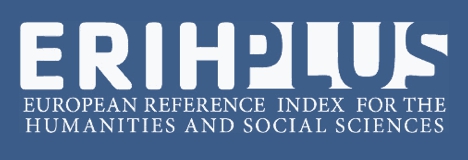Literature as a tool for physical geography teaching
Abstract
This work proposes to discuss the relationship between Physical Geography and the language of Literature as a proposal of pedagogical practice for Elementary School from the literary work Journey to the Center of the Earth by the French author Júlio Verne. The article aims to propose a pedagogical practice linked to the teaching of Physical Geography and Literature proposed for Elementary School as well as demonstrate the need to use languages for the most critical and realistic teaching of Physical Geography in basic education. As results found, Geography is present in several aspects of the work in question and can be used in a variety of ways, through a fictitious history where with the imaginative aspects of Geography are evidenced. The work demonstrated the importance of languages in the teaching of Geography and the need to expand their use.
References
ASCENÇÃO, Valéria de Oliveira Roque; VALADÃO, Roberto Célio. Tendências contemporâneas na aplicação do conhecimento geomorfológico da Educação Básica: a Escala sob perspectiva. Espaço Aberto, PPGG-UFRJ, v. 6, n. 1, p. 191-208, 2016.
BERNSTEIN, Basil. A pedagogização do conhecimento: estudos sobre a recontextualização. Revista Cadernos de Pesquisa, nº 120, p. 75-110, nov./2003.
BRASIL. Presidência da República, Casa Civil. Lei Nº 12.796, de 4 de abril de 2013. Dispõe sobre a formação dos profissionais da educação e dá outras providências. Brasília: Presidência da República: 2013(b). Disponível em:
CALLAI, Helena Copetti. Estudar o lugar para compreender o mundo. In: CASTROGIOVANNI, A. C.; CALLAI, H. C.; KAERCHER, N. A. (Orgs). Ensino de Geografia: práticas e Textualizações no cotidiano. 7° ed. Porto Alegre: Meditação, 2009.
CASTELLAR, Sônia; VILHENA, Jerusa. Ensino de Geografia. São Paulo: Cengage Learning, 2012.
CASTELLAR, Sônia. Cartografia escolar e o pensamento espacial fortalecendo o conhecimento geográfico. In: Revista Brasileira de Educação em Geografia, Campinas, v. 7, nº 13, p. 207-232, jan./jun., 2017.
CAVALCANTI, Lana de Souza. Desafios da didática de Geografia. Goiânia: Ed. Da PUC Goiás, 2013.
DIAS, Gabriela Klering. Prática pedagógica para o ensino de Geografia Física a partir da Literatura: uma proposta metodológica para o Ensino Fundamental. 2018. 57 f. Monografia (Licenciatura em Geografia) – Departamento de Geografia, Instituto de Ciências Humanas, Universidade Federal de Pelotas, Pelotas, 2018.
FERRAZ, C. B. O. Literatura e Espaço: Aproximações possíveis entre arte e geografia. In: GOETTERT, J. D.; MARSCHNER, W. R (Orgs.). Transfazer o espaço: ensaios de como a literatura vira espaço e vice versa. Dourados: Ed. UFGD, 2011.
FREIRE, Paulo, Educação e Mudança. Rio de Janeiro: Paz e Terra, 1984. 77p.
MAINARDES, J.; STREMEL, S. A teoria de Basil Bernstein e algumas de suas contribuições para as pesquisas sobre políticas educacionais e curriculares. Revista Telas, v. 11, n. 22, p. 1-24, Mai/Ago 2010.
MEIRELES, Mariana Martins de; PORTUGAL, Jussara Fraga. Entre textos, imagens e canções: a “Cidade da Bahia” e suas geografias. In: PORTUGAL, Jussara Fraga; CHAIGAR, Vânia Alves Martins. (Orgs.). Cartografia, Cinema, Literatura e outras linguagens no ensino de Geografia. Curitiba, PR: CRV, 2012. p. 19-40.
MENDONÇA, Francisco de Assis. Geografia Socioambiental. Revista Terra Livre. São Paulo, nº 16, p. 113-132, 1º semestre/2001.
PONTUSCHKA, Nídia Nacib; PAGANELLI, Tomoko Iyda; CACETE, Núria Hanglei. Para ensinar e aprender Geografia. São Paulo: Cortez, 2007.
SOUZA, M. L. Os conceitos fundamentais da pesquisa sócio-espacial. 1 ed. – Rio de Janeiro: Bertrand Brasil. 2013.
TARDIF, Maurice. Saberes docentes e formação profissional. Petrópolis: Vozes, 2006.
VERNE, Júlio. Viagem ao centro da Terra. Porto Alegre, L&PM, 2016.
ZABALA, Antoni. A Prática Educativa: Como Ensinar. Porto Alegre: Artmed, 2011.

This work is licensed under a Creative Commons Attribution-NonCommercial 4.0 International License.
Policy Proposal for Free Access Journals
Authors who publish in this journal agree to the following terms:
a. Authors retain the copyright and grant the journal the right of first publication, with the work simultaneously licensed under the Creative Commons Attribution License which allows the sharing of the work with acknowledgment of the authorship of the work and initial publication in this journal.
b. Authors are authorized to take additional contracts separately, for non-exclusive distribution of the version of the work published in this journal (eg publish in institutional repository or as a book chapter), with acknowledgment of authorship and initial publication in this journal.
c. Authors are allowed and encouraged to publish and distribute their work online (eg in institutional repositories or on their personal page) at any point before or during the editorial process, as this can generate productive changes, as well as increase the impact and The citation of published work (See The Effect of Free Access).





















